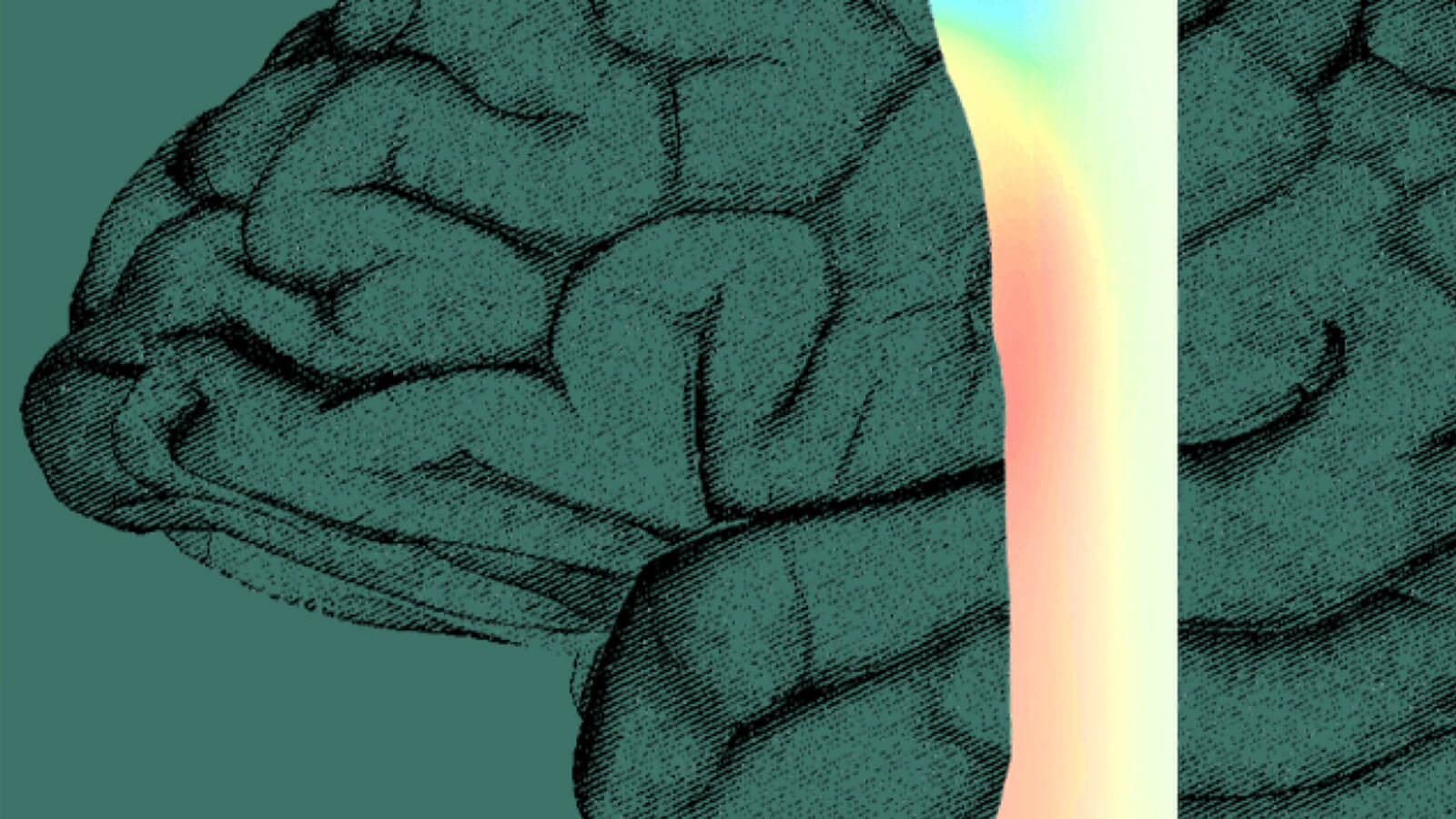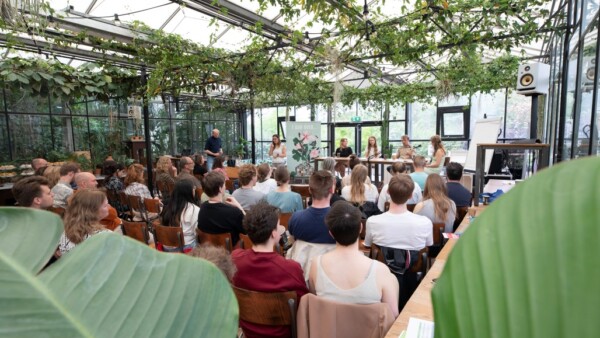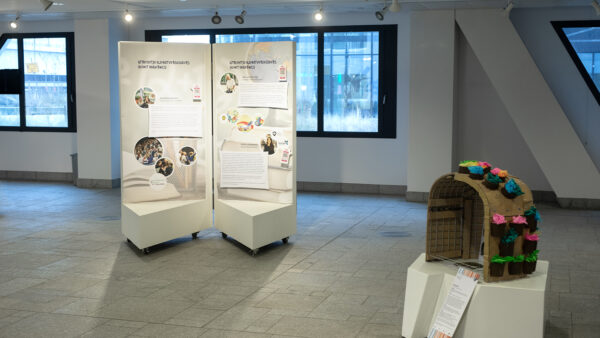Every year about nine hundred international students come to study at the HU. They can choose from eighty programmes. The HU offers exchange programmes, non degree programmes, minors, internships and a Summer School. On top of that there are English bachelor- and mastercourses. The HU works together with 185 partner universities. Four students from Germany, Mexico, China and England explain why they study in Utrecht and how they like it.
By Mandy Bollegraf
On the campsite
Markus Schäfer and Robert Mieske (both 25) come from Hildesheim in the north of Germany and they’re the only international students on the Nijenoord. The civil engineering students are here from February till the end of June. It wasn’t long before they found out that finding a cheap room in Utrecht is not that easy. Their solution: Camping de Boomgaard in Bunnik.
What brings you in Utrecht?
Robert: ‘Our school in Germany is a partner university of the HU. In October last year we came to visit. Instructors told us about an international class and we were interested.’
Markus: ‘Whe decided to go, but then we heard that they cancelled the international class. We already arranged everything en still very much wanted to go. That’s why we decided to come anyway and do the course in Dutch. We study waterconstruction and where better to do that than in the land of water: Holland?’
And the lessons are in Dutch?
Markus: ‘Naturally we prefer English lessons, but it’s allright. Classmates help and the teachers take us into acount as well. For a few lessons we don’t do exams, we make assignments instead. We’re allowed to write these in English and sometimes even in German. And the questions in the exams are often multiple choice, which is easier for us. We learn, eventhough everyting’s in Dutch, a lot. And we pick up some practical experience. We are now building a constrution for a drain, which is very fun to do.’
Robert: ‘We wanted to learn the Dutch language, but our coordinator couldn’t find us a language course from German to Dutch, which was a pity. We now bought books and force ourselves to study at least a few hours a week.’
Is there a difference with the German way of teaching?
Markus: ‘Here teachers and students go more into a discussion with each other. In Germany the teacher speaks and the students listen. If we don’t know something here, we have to ask for it. We don’t get anything handed to us.’
Why do you live on a campsite?
Robert: ‘It started out as a joke. In Germany we always make fun of Dutch people and their caravans. It seems as though everyone has one. When we found out the rooms are expensive here we immediately thought of the campsite! We now live in my parents’ caravan.’
Markus: ‘We’ve got everything we need here. Even the internet connection is fast. And no student has such a big garden! All that for only 200 euro per person, per month.’
The city center and school are far away though.
Robert: ‘Yeah, but we’ve got a bike, like true Dutchies. To the Nijenoord is ten kilometers, but we like cycling and own four bikes.’
What do you think of Utrecht?
Markus: ‘I’ve been to a lot of Dutch cities, but Utrecht is my favourite. I like the old buildings and there is a party every night. It’s the ultimate student city.’
Robert: ‘And no city has those terraced canals.’
Hollandscore
• Live on a campsite
• Swam in the canals in Utrecht
• Own four bikes
• Had on orange outfits on Queensday
• Are FC Utrecht fans
Bundle of tulips
Nan Gao (24) was persuaded by his friends who study in Holland to come too. In 2003 he left China behind him. He started at the businessschool in Arnhem and two years ago he began with international communication & media in Utrecht.
What do you think of the course?
‘I think it’s interesting and informative. After the businessschool I wanted to do more with communication, public relations and marketing. I now feel I’m in my place. I get a lot of assignments and sometimes I don’t have any time left. But it’s better to do a lot than to do nothing at all. I learn a lot about different cultures from my classmates who come from all over the world. Sometimes they have different ideas on how, for example, people read advertising texts. And that’s informative for everyone. When I go back to China after my education, I can find a good job on an international level, because of this course.’
What’s the difference between studying in China and here?
‘In China everyone listens to the teacher. They don’t go into discussion with each other like they do here. It isn’t as easy as it is in Holland to go to a university in China. For every course you have to do a difficult admission exam. If you fail, then it’s bad luck. But if you get through, it’s easier to graduate. In China they sometimes fiddle with credits and resits are very easy, so no one fails.’
How did you find your room?
’My coordinator at school told me that looking for housing via the SSH isn’t that simple. Luckily she knew someone who rented out rooms on the Mauritsstraat and he had a room left. I live together with a few other international students and I enjoy it.’
What do you think of Holland and Utrecht?
‘Utrecht is a quiet city, the people are relaxed. In China I lived in a very busy place and that didn’t suit me. And like every Chinese I love tulips. For us it’s the ultimate symbol of Holland. I really liked the Keukenhof and I sometimes buy a bundle of tulips.’
What do you miss here?
‘I miss the big dining halls. In China everyone eats all their meals at school. I’ve got to cook more now.’
Do you know some Dutch yet?
‘I use ‘hoe gaat het met je’ often. I have Dutch lessons twice a week. My goal is to learn the entire language. Especially the letter ‘r’ is difficult for me, but I get high grades and I like the language.
Hollandscore
• Visited De Keukenhof
• Is learning the Dutch language
• Often has a bundle of tulips in his house
Dutchie
Liliana Gaete (28) was born in Mexico and studies on the Canadian Island Vancouver Island. That’s where she met her Dutch boyfriend who did the exchange programme european culture & european journalism. When he finished, she decided to do the same programme here in Holland. From December till June she’s trading places with a student from here. She lives with her boyfriend and his parents in Oud-Zuilen.
What do you think of the course?
‘I’ve got mixed feelings. We write a lot, which is something I do for my education in Canada, creative writing and journalism, as well. What strikes me, is that there are people in my class without a journalistic background. That’s why it’s sometimes difficult to work with each other. In the first block I missed a course on different journalistic genres. I didn’t really have that in Canada yet. We had to make a review, but the teacher didn’t explain us how to write it. I looked it up on the internet. In the second block we went to Paris and Barcelona to write articles, but we still didn’t have any clue on how to do that. Bad communication between teachers and students is troublesome as well. Often the roster wasn’t ready. I am the first student of my university who came here, but I won’t come back with a positive story. That doesn’t mean I didn’t learn anything. As an experience it’s great, but the programme has to change.’
Is the way of studying different here?
‘For most courses I only have one exam. That’s different in Canada. There you’ve got more chances to get a good grade in the end. That system works really well. The way students are mentored is more individual in Canada. When you’re behind here, that’s your own problem. I’m not used to that.’
Biggest difference with your own culture?
‘Mexico is more conservative. My parents wouldn’t allow my boyfriend to stay with them that easily. My life in Canada is different as well. There are more rules over there. No parties during the week and the pubs all close at two am. The Dutch humour is different too. I didn’t get the jokes in the beginning. They are so lame! I now understand the language and the jokes a bit more. My friends call me ‘Dutchie’, because I act like a Dutch person now.’
What do you like about Holland?
‘I already came here once to visit my boyfriend and I immediately fell in love with this country and especially Utrecht. It’s a small, but big city and the atmosphere is good. I like the openness and freedom in Holland. I like being in the country. The house I live in lies near the water. It’s lovely to sit in the garden and watch the swans, ducks and geese go by. I’m even thinking about moving here after my education in Canada.’
What do you miss?
‘Good Mexican food.’
Hollandscore
• Owns wooden shoes
• Is thinking about moving here
• Can order soup in Dutch
Everything is ‘lekker’
Dane Bradshaw (21) from London thought one semester abroad wasn’t enough. That’s why he decided to do two programmes. The first semester he did international communication & media and since February he started with european culture & european journalism.
Why did you come to Utrecht?
‘I wanted to get away from everything and everyone and do something different for a while. I liked Utrecht, it looked like a good student city. I looked up two programmes, because just one semester abroad seemed so short.’
Biggest difference between Londeners and Utrechters?
‘Most people here are more relaxed. When there’s a red light I am the only one who walks. It’s a thing I also see at school. Here it’s more normal to resit exams. The students are less pressurised. I’ve noticed that I’m starting to put things off as well!’
What do you think of Utrecht and Holland?
‘Utrecht is a small city, but there’s a lot going on on so many different areas. Often there are cool festivals and I even hear the music I listen to, dubstep, around here, while it’s relatively new even in London. Holland is a free country. But paying for mayonaise and a trip to the toilet are things that struck me.’
Did you have any bad experiences here?
‘Finding a room was terrible. The SSH found me something, but it took a long time. I moved out of that room again, because my roommate was a junkie who I couldn’t live with. I got a different room now, but it’s in Kanaleneiland and I pay 350 euro a month, which is way too much I think.’
What do you miss?
‘In London there is a shop on every corner that’s open 24/7. When I forget something from the supermarkt here, it’s bad luck. I have to get used to that.’
Do you speak Dutch yet?
‘Only the basics like doei, dankjewel en alsjeblieft. And I know the word ‘lekker’, which is very useful. You use it for almost everything!’
Hollandscore
• Has been on top of the Dom twice
• Visited the Centraal Museum and the Aboriginal Art Museum
• Knows the Dutch word ‘lekker’




